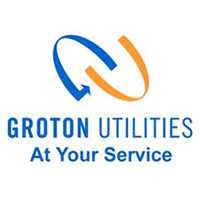Solar power in Connecticut
Connecticut continues to be one of the top states in the US to install solar on homes.
The combination of net metering, the federal tax credit, excellent state-based incentives, and some of the highest utility power costs in the nation makes solar a great investment for your home in Connecticut.
Compare solar quotes from the top solar companies in Connecticut
Connecticut solar power facts
$2.84 watt
Average cost: 5kW solar power system
?6 Years
Average payback time
$62,483
Average lifetime savings
?6¢ kWh
Levelized cost of solar energy
37¢ kWh
If you don't get solar
?8,571 kWh
Annual power production
Cash flow graph based on cash purchase of a 7.17kW system
This 7.17kW system would offset 100% of your energy usage if your typical monthly bill in Connecticut is $150, however, your situation may vary so try our solar calculator to get a result tailored to you.
1
Solar companies in Connecticut that provide pricing through the SolarEstimate marketplace.
How much can solar panels save you in Connecticut
Average total cost of solar panel installation in Connecticut
| System Size | Cash purchase After 26% solar tax credit |
Financed purchase After 26% solar tax credit |
|---|---|---|
| 3kw | $6,482 | $7,001 |
| 4kw | $8,525 | $9,207 |
| 5kw | $10,508 | $11,349 |
| 6kw | $12,476 | $13,475 |
| 7kw | $14,349 | $15,496 |
| 8kw | $16,162 | $17,455 |
| 9kw | $17,915 | $19,349 |
| 10kw | $19,610 | $21,179 |
How much do solar panels cost in Connecticut?
$2.84 per watt
Cash purchased solar system
Before 26% solar tax credit
$3.18 per watt
Financed solar system
Before 26% solar tax credit
$17.7¢ /kWh
Lease/PPA
Ave 15 year term, 2.5% price escalator
What are the pros and cons of installing solar panels in Connecticut?
The advantages of installing solar panels in Connecticut are that there is both state-based incentives and the federal tax credit available. In addition, Connecticut also has expensive utility rates which makes the overall return on investment for an installation of residential solar panels in the state one of the best in the nation.
SolarPowerRocks provides a great breakdown of solar incentives and policy for each state within the US.
The disadvantage of installing solar panels for your home in Connecticut is that there is less overall solar irradiation per year. So, a solar system produces less in Connecticut than it would in sunnier states, like Arizona.
However, the local and federal incentives more than make up for the limited sunshine in the state.
Enter your details to calculate the potential costs and savings you are likely to see from installing solar for your home.
Best solar companies in Connecticut
Compare solar quotes from the top solar companies in Connecticut
Best brands of solar panels
To find the best brands of solar panels you can use America's most trusted solar panel comparison and reviews website, SolarReviews.
However, reviews of solar panels can be a bit meaningless because most consumer owners have not had any issues and so while solar company reviews are very important when choosing solar installers they are of less use when choosing solar panels.
For more information to help you make an informed decision about this topic, I would recommend this article about buying solar panels.
How much electricity will solar panels produce in Connecticut
Solar panels produce different amounts of energy in different locations.
Around the Bridgeport area solar panels installed on a south-facing 31-degree pitch roof will typically produce:
1,153kWh
per year per 1kW of peak DC
(direct current) capacity
For more information about how your location, roof direction, and roof tilt affects solar power production use the solar panels calculator and enter your zip code.
I want to buy a solar panel kit and install it myself
What rebates, solar tax credits and other solar incentives are available in Connecticut
Renewable Portfolio Standard
Connecticut’s Renewable Portfolio Standard (RPS) requires the state’s electric providers to obtain a certain percentage of their energy from renewable sources. The RPS defines three classes of renewables: Class I, Class II, and Class III.
Solar is considered a Class I renewable. Connecticut set the target of having 48% of the state’s total energy to be derived from renewables in 2030, with 40% of that coming from Class I sources. Utility companies Eversource and United Illuminating have different policies regarding retaining RECs.
Net metering in Connecticut
There has been some controversy surrounding net metering in Connecticut. In 2018, the state legislature passed a bill that would end net metering and replace it with a low-value feed-in-tariff at the end of 2019. Luckily, in May 2019, a bill was passed that extended net metering until December 31, 2021. 2021 is still right around the corner, so the time to install solar is now, before net metering runs out!
The net metering policy requires utilities to provide their customers a credit for the full retail rate of any excess energy they export to the grid. For example, if you have a residential solar system and you generate more energy than you use for a certain month, you will receive a credit for the excess energy you produced that can be applied to your next month’s bill.
Residential Solar Investment Program
The Residential Solar Investment Program is administered by Connecticut Green Bank. The program offers two different incentives:
The EPBB incentive is an upfront cost reduction that is paid directly to the contractor on your behalf upon completion of your solar panel - meaning less money out of your pocket. The current rebate is equal to $0.463 per Watt.
The PBI, on the other hand, allows homeowners to enjoy the benefits of a solar system without the big upfront costs. Through this incentive, the homeowner enters into a contract with a third-party system owner. The PBI is then paid to the system owner based on the performance of the system over the course of 6 years. So, the third-party owner will receive $0.035 per kilowatt-hour (kWh) of energy produced by the system. This is used to reduce the homeowner’s monthly costs.
Tax exemptions
Connecticut offers two types of tax exemptions for solar systems: a property tax exemption and a sales tax exemption.
Historically, installing a solar system on one’s property would cause an increase in the value of property taxes, however, the property tax exemption exempts 100% of the assessed costs associated with the solar system from the homeowner's property taxes.
Not to mention, through the state’s sales and use tax exemption, solar system equipment is cleared of state sales tax - leading to even more savings.
Connecticut Solar Calculator
Regardless of what you want to know about the economics of installing solar panels for your home or business in Connecticut, we have a solar calculator that can show you exactly the information you require.
What you can find out about installing solar panels in Connecticut using our full monthly solar calculator
This solar calculator requires you to input your address, utility company, your average monthly power spend - It tells you:
- What size solar system do you need?
- Answers the question of How many solar panels do I need?
- How many square feet of roof space you need for solar panels
- Solar electricity production in annual kWh (kilowatt-hours) you can expect from your solar system in Connecticut
- The value of solar tax credits and other incentives you are entitled to based on the estimated size of system you need, your location and your utility provider.
- Likely cost based on an average of prices charged for solar systems of that size in the last year in Connecticut or Bridgeport ;
- The likely payback period on your solar panels and your investment return.
- Your total lifetime solar savings based on each of the major solar finance options, a cash purchase, a cash purchase funded with a HELOC sol (home equity line of credit) and a zero-down PPA or third party lease product.
If you want to see all of the above but also see live pricing, the three best solar deals available in your city and get binding quotes from each of these solar companies then use this Connecticut solar panels calculator. This calculator requires you to also input your name and contact details because most of our 200+ installer partners will only authorize the sharing of their live solar pricing where we have validated that you are a real homeowner with a home in their service area. We respect the privacy of your data and only share your contact details with the solar companies you ask us to get binding quotes from.
Going solar in Connecticut
Check out all of the ways energy providers of Connecticut can help you be more energy-efficient and save money.
The following programs are available:
| Incentive Name | Eligibility | Type |
|---|---|---|
| Residential Renewable Energy Tax Credit | Federal | Personal Tax Credit |
| Residential Solar Investment Program | State | Rebate Program |
| Net Metering | State | Net Metering |
| Property tax Exemption for Renewable Energy Systems | State | Property Tax Incentive |
| Sales and Use Tax Exemption for Solar and Geothermal Systems | State | Sales Tax Incentive |
| Smart-E Loans | State | Loan Program |
Find your local rebates and incentives
Your city may have further incentives to offer. Please keep in mind that the best source of up-to-date information on incentives is the solar installers who specialize in your area.







